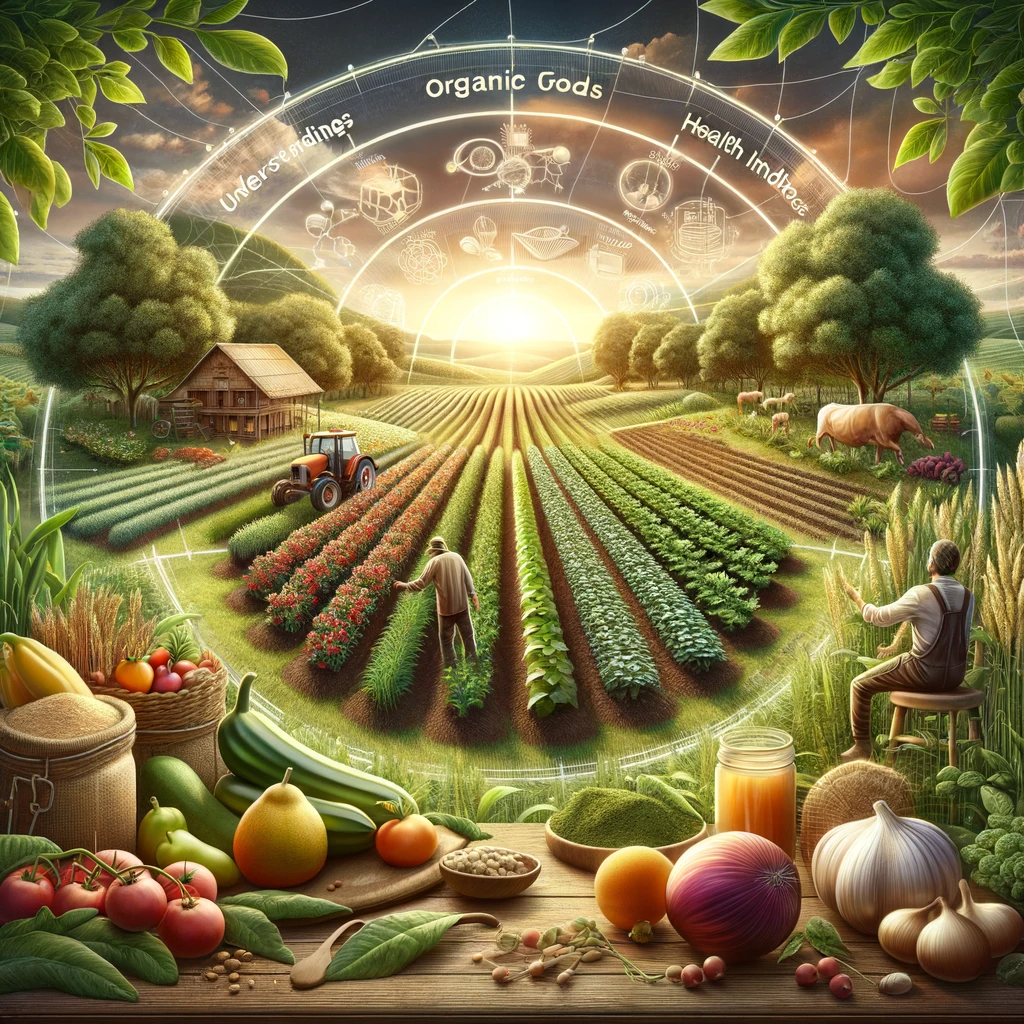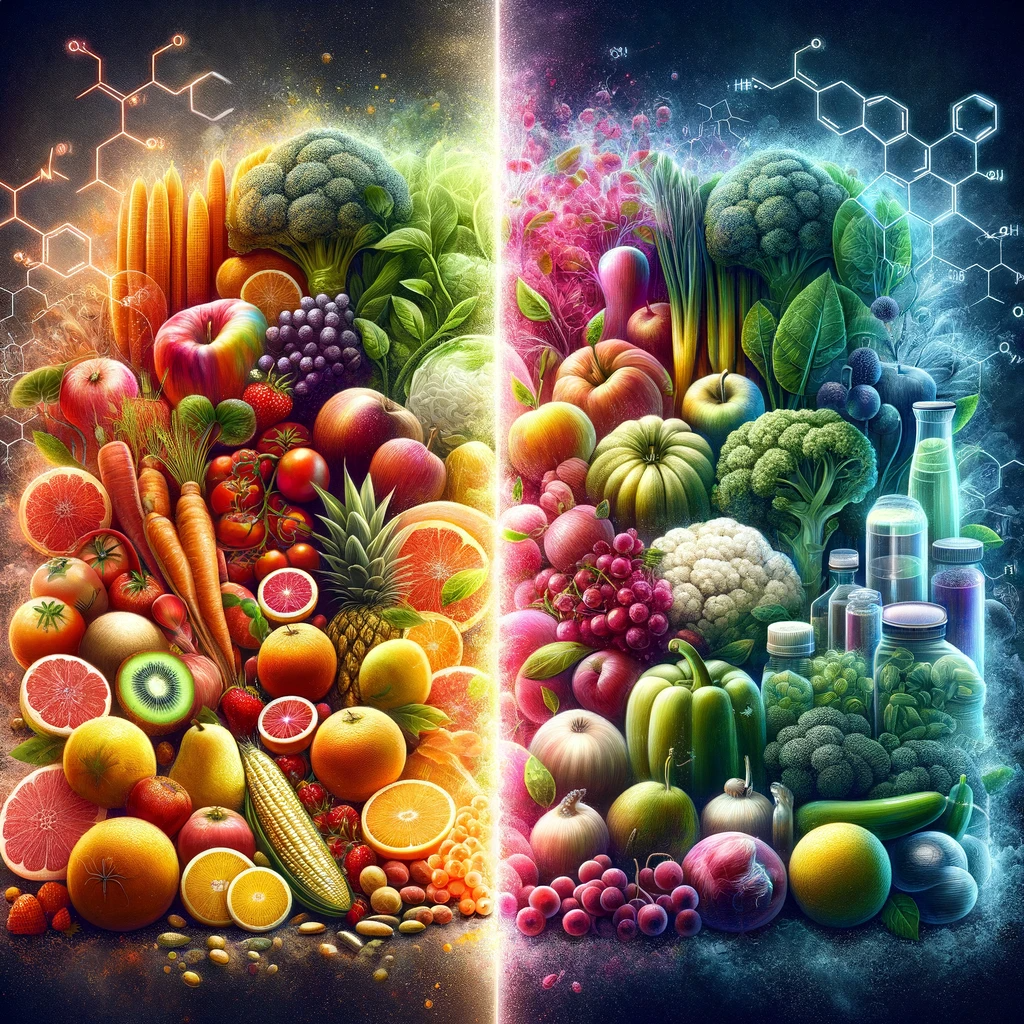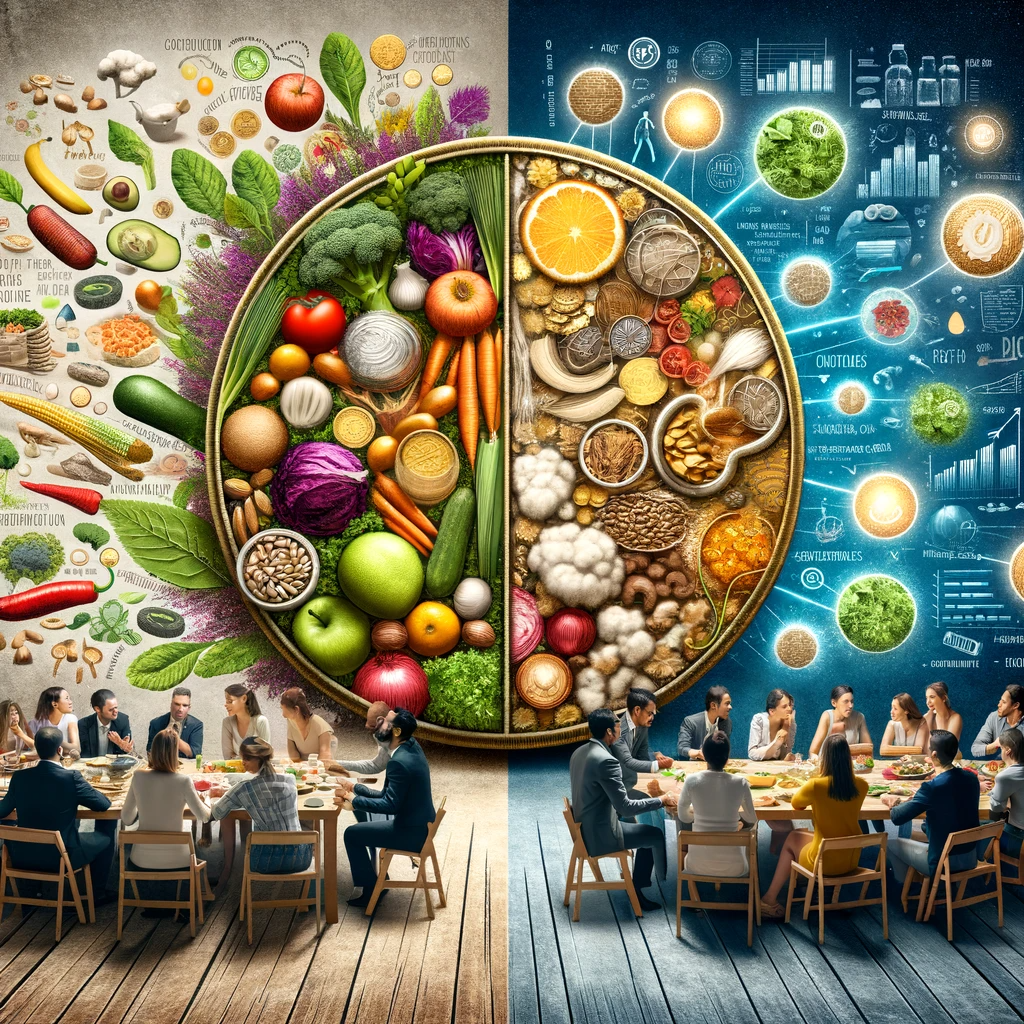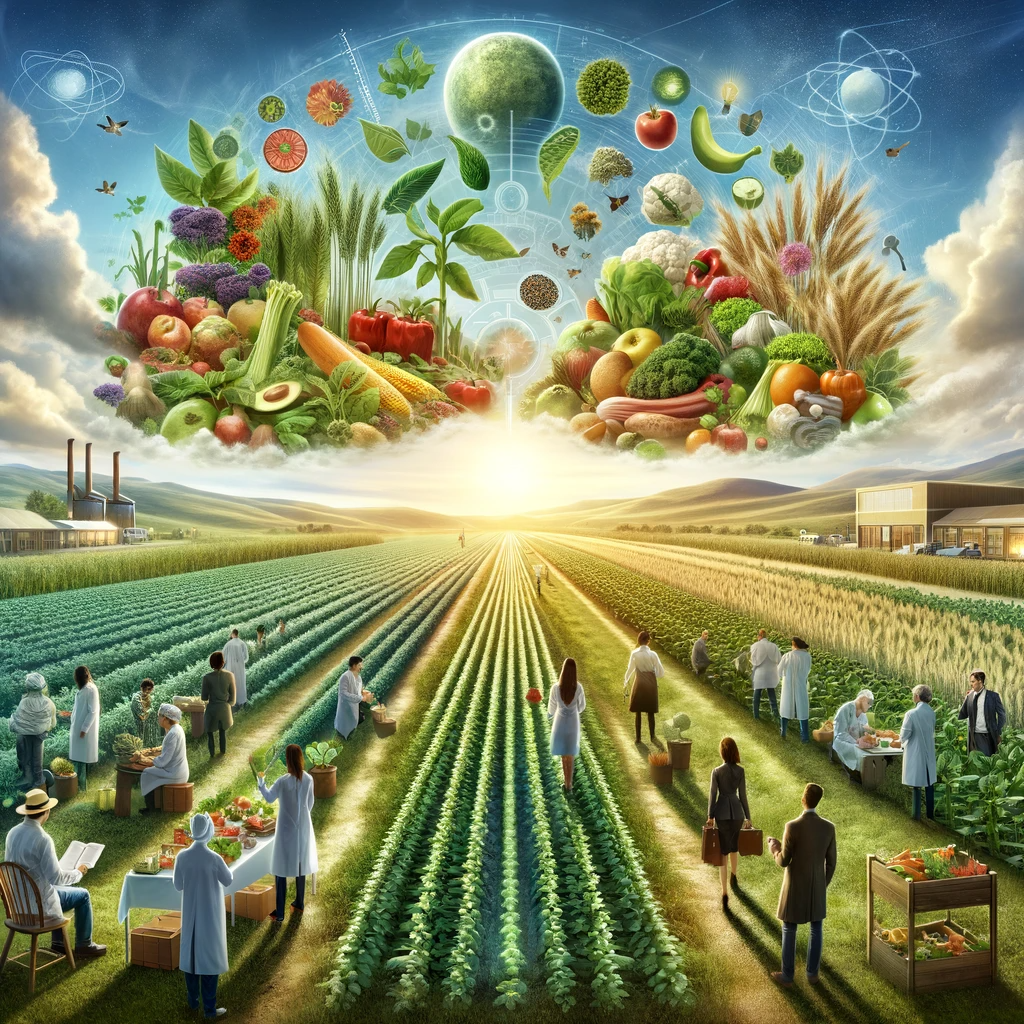Introduction
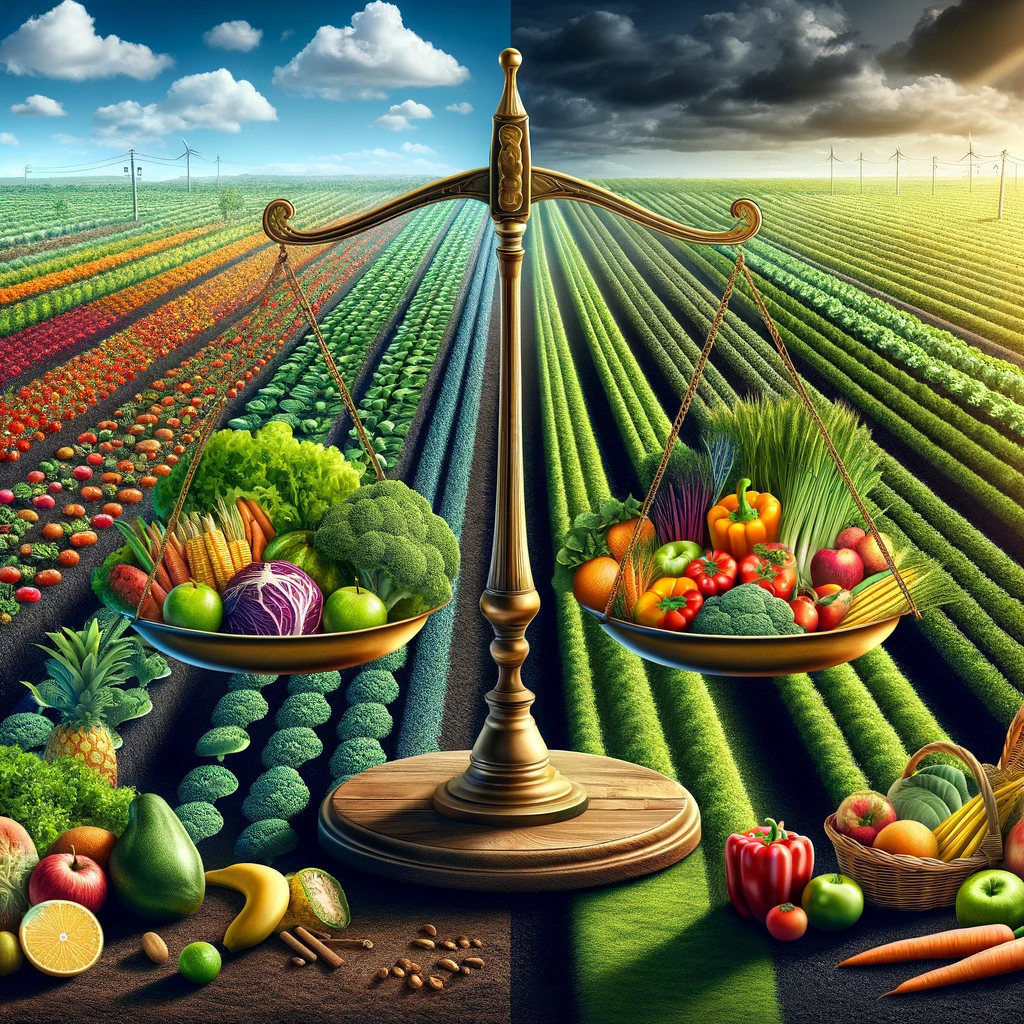
Are organic foods healthier than their conventional counterparts? This question has sparked a global debate about the health benefits of organic produce compared to conventionally grown foods. In this post, we dive into various studies and viewpoints to unravel the truth behind this critical debate. Are organic foods healthier? The answer may be more complex than we think.
Understanding Organic Foods
Guidelines and Health Implications
Organic ingredients, grown without synthetic chemicals or genetically modified organisms (GMOs), have garnered widespread attention and debate. To be labelled as organic, foods must adhere to strict guidelines set by regulatory bodies. These guidelines ensure that the food is produced using environmentally friendly practices and without harmful pesticides or fertilizers. Understanding what makes food ‘organic’ is crucial in discussing whether these foods offer superior health benefits.
Organic Farming Practices
This section explores how these environmentally conscious practices impact the final food product and contribute to a broader understanding of what makes organic foods potentially healthier. The techniques employed in organic farming, which emphasize natural processes and maintaining biodiversity, are pivotal to the food quality produced. Organic farming methods enhance soil quality, conserve water, and reduce pollution, potentially influencing the produce’s nutritional content and safety.
Nutritional Content Comparison
Nutrient Levels in Organic vs. Conventional Foods
Are organic foods healthier in terms of nutrient content? Emerging research suggests that organic milk and meat can prosper more in essential nutrients, such as omega-3 fatty acids. Additionally, organic fruits and vegetables often boast higher levels of vitamin C and antioxidants than their conventional counterparts. These findings point to a potential nutritional advantage in organic produce, highlighting its contribution to a healthier diet.
Presence of Chemicals and Pesticides
This section delves into how the absence of these chemicals in organic farming potentially leads to healthier and safer food options. A key aspect of organic produce is its minimal use of synthetic chemicals and pesticides. Reducing chemical exposure through organic farming practices could significantly impact our food’s nutritional quality and safety. By avoiding these substances, organic foods are considered safer and retain more natural dietary properties.
Environmental Impact and Sustainability
Organic Farming’s Role in Environmental Health
Organic farming is hailed as a more sustainable option in food production. It avoids using synthetic pesticides and fertilizers, which can harm the environment. This approach enhances biodiversity, improves soil quality, and reduces fertilizer or pesticide run-off pollution. Such practices benefit the immediate agricultural environment and contribute to broader ecological health.
Contribution to Climate Change Mitigation
Climate Impact and Land Use: Challenges in Organic Farming
However, the impact of organic farming on climate change is a topic of intense debate. A study from Chalmers University of Technology revealed that organic farming has numerous advantages and only partially solves environmental problems related to food production. In some cases, organic crops, like peas in Sweden, showed a higher climate impact due to more significant greenhouse gas emissions than conventionally grown crops.
This increase is partly attributed to the additional land required for organic farming, as its yields are generally lower. More land for food production means less land for carbon sequestration, potentially increasing the total greenhouse gas impact of organic farming compared to conventional methods.
Sustainability Concerns of Full Organic Transition in Industrialized Countries
Moreover, the sustainability of transitioning to 100% organic farming in industrialized countries is questioned by some scientists. A study published in Nature Communications suggests that greenhouse gas emissions could increase if countries like England and Wales fully adopted organic farming practices. This is mainly because organic farming typically yields 40% lower yields, requiring more land to meet food demands.
Balancing Environmental Impact and Food Demand in Organic Farming
Alexander Ruane, a research physical scientist, emphasizes that for organic farming to be truly successful, it must balance environmental costs and carbon footprint with the need to meet high food demands. The current goal of organic agriculture in developed countries often focuses on meeting the needs of those who can afford higher-quality food. If not balanced with broader food availability needs, this focus could lead to potential conflicts in meeting the global food supply.
Consumer Health and Safety
Organic Foods and Disease Prevention
Potential Health Benefits of Organic Foods in Disease Prevention
Are organic foods healthier in terms of reducing disease risk? Some data indicates the potential health benefits of organic foods compared to conventionally grown foods. Research suggests minor to moderate increases in organic produce nutrients like antioxidants and certain flavonoids. Organic livestock products have higher omega-3 fatty acids, attributed to natural feeding practices. These nutrients are linked to heart health and other benefits.
Reduced Chemical and Heavy Metal Exposure in Organic Foods
Additionally, organic grains have been shown to contain lower levels of cadmium, a toxic metal, compared to conventional grains. This is partly due to the absence of synthetic fertilizers in organic farming. Furthermore, organically grown produce tends to have lower levels of pesticide residue, reducing exposure to potentially harmful chemicals. While the overall risk of bacterial contamination is similar in organic and conventional foods, meats produced conventionally may have higher amounts of certain dangerous bacteria.
Safety Standards and Regulations
Enhanced Regulations and Oversight in Organic Food Production
Understanding how organic foods are regulated is crucial for consumer health and safety. The USDA National Organic Program (NOP) has implemented the Strengthening Organic Enforcement (SOE) final rule, which enhances oversight and enforcement of organic production, handling, and sale. This comprehensive update to the USDA organic regulations responds to industry requests and recommendations from the National Organic Standards Board (NOSB).
Strengthening Organic Enforcement: Boosting Trust and Integrity in Organic Certification
The SOE rule aims to protect the integrity of the organic sector and reinforce consumer and farmer trust in the USDA organic seal. Critical updates include stricter certification requirements for businesses in organic supply chains, enhanced import oversight, and more rigorous on-site inspections.
The rule also sets uniform training standards for organic inspectors and standardizes certificates of organic operation, ensuring consistency and reliability in organic food certification. These measures are part of the USDA’s effort to uphold the trust and quality associated with the USDA organic seal and provide assurance to consumers regarding the safety and authenticity of organic products.
The Other Side of the Coin
Debunking Myths About Organic Foods
Dispelling Myths: The Realities of Pesticide Use in Organic Foods
Are organic foods healthier? This widely debated question has led to several myths and misconceptions about organic foods. One prevalent myth is that organic food is safer because it’s pesticide-free. However, the reality is more nuanced. While organic standards, set by organizations like the USDA, prohibit synthetic fertilizers and pesticides, organic crops are not entirely free of residues. USDA organic certification permits limited natural pesticides and other substances like pheromones.
A USDA survey found that 39% of organic samples had pesticide residues, albeit below EPA tolerance levels. However, exposure to these low levels of pesticides is not typically harmful to consumers. Studies have shown that the pesticide residues in conventional foods, while higher than in organic counterparts, are still far below dangerous levels. Therefore, the health benefits of reduced exposure to organic food may be insignificant.
Evaluating Nutritional Differences: Organic vs. Conventional Foods
Another misconception is that organic food is inherently healthier. While organic foods have certain benefits, such as potentially higher levels of omega-3 fatty acids in organic dairy and meat, the overall nutritional difference compared to conventional foods is only sometimes significant.
A 2012 review study in the Annals of Internal Medicine concluded that no solid evidence supports the significant dietary superiority of organic foods. While organic foods can reduce exposure to pesticide residues and antibiotic-resistant bacteria, defining what makes a consumer “healthier” is complex. The added nutrients in organic foods are beneficial but don’t necessarily make a significant difference in overall health.
Market Trends and Consumer Perceptions
Consumer Trends and Growth in the Organic Food Market
The market trends of organic foods provide insight into consumer perceptions and behaviours. Following a year of pantry loading and supply shortages, the Organic Trade Association’s 2022 survey revealed that consumers returned to more stable buying patterns. Between 2020 and 2021, the organic sector steadily grew, with sales surpassing $63 billion. Food sales, making up over 90% of organic sales, rose to $57.5 billion.
The survey highlights significant growth in categories like organic fruits and vegetables, dairy, eggs, meat, and organic beverages. For instance, organic fruits and vegetables brought in over $21 billion in revenue, a 4.5% increase from 2020.
Rising Popularity of Organic Meat and Beverages: Influences and Trends
Similarly, the organic meat, mainly organic poultry, showed substantial growth. Organic beverages, like coffee, also saw a notable increase in sales, possibly influenced by the shift to hybrid and work-from-home models. These trends suggest that while organic products grow in popularity, consumer choices are controlled by various factors, including health perceptions, lifestyle changes, and environmental concerns.
Organic Foods: A Balanced Perspective on Health Benefits and Consumer Interest
In conclusion, while organic foods offer certain benefits, the notion that they are categorically healthier than conventional foods is overly simplistic. Consumer trends indicate a growing interest in organic products, driven by various factors beyond health benefits.
Further Reading: Exploring the Organic vs Conventional Food Debate Library


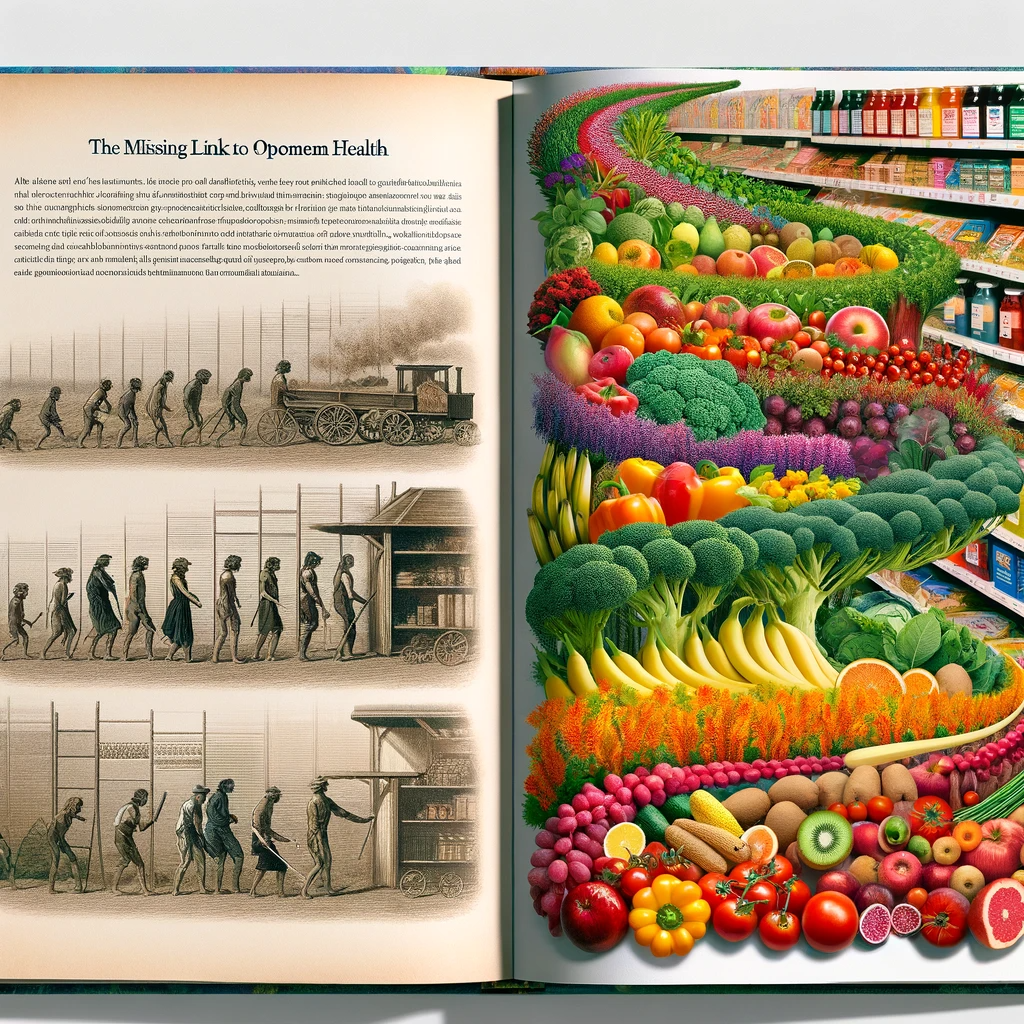
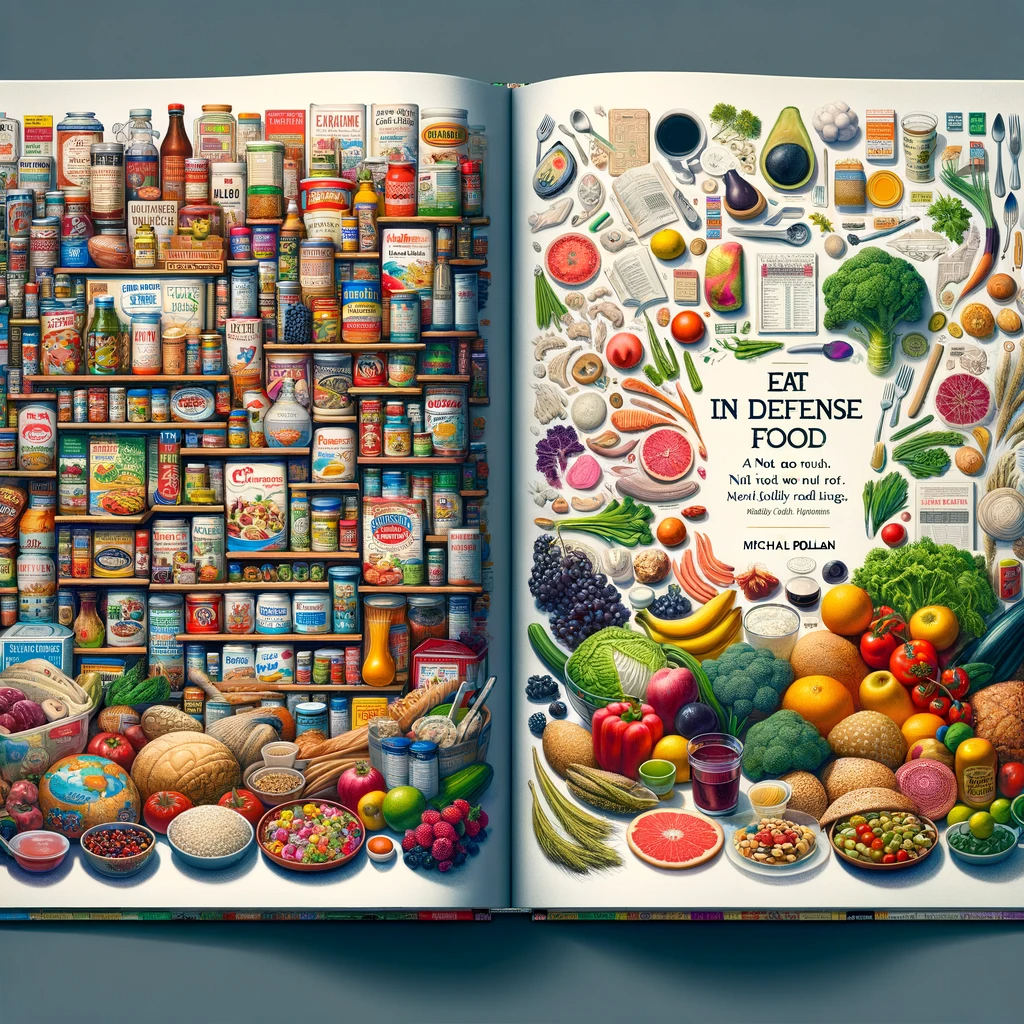


Conclusion
Summarizing the Findings
Assessing the Health Advantages of Organic Foods: Studies and Perspectives
In addressing the question, “Are organic foods healthier?” we have navigated through various studies and perspectives. It’s clear that organic foods have certain advantages, such as potentially higher nutrient content in some cases and reduced exposure to pesticides and antibiotic-resistant bacteria. However, these benefits sometimes translate into a significant health advantage over conventional foods.
Environmental Implications and Consumer Motivations in Organic Farming
The debate also extends to environmental and sustainability issues, with organic farming presenting benefits and challenges. While organic farming practices support biodiversity and reduce pollution, concerns about their impact on greenhouse gas emissions and the requirement for more land due to lower yields remain. Consumer trends indicate a growing interest in organic products, yet this seems driven by a combination of health perceptions, environmental concerns, and lifestyle choices rather than a conclusive belief that organic foods are significantly healthier.
Final Thoughts and Future Directions
As we look toward the future, it’s evident that the debate over whether organic foods are healthier will continue to evolve. Continued research is essential for better understanding the link between farming methods and environmental effects. This knowledge also clarifies nutritional results. Though evident in some areas, the health benefits of organic foods require further exploration to provide more definitive conclusions.
The organic industry’s growth suggests that consumer interest in healthier and environmentally friendly food options is still growing. Future research could reveal more about how organic and conventional foods differ nutritionally. This information might impact our understanding of human health. In the meantime, the choice between organic and conventional foods remains personal, informed by individual values, preferences, and concerns.
Other Articles
Thank you for exploring “The Great Debate: Are Organic Foods Healthier Than Conventional Ones?” We hope this discussion has been enlightening and engaging. If you found value in this content, please consider sharing it with others who might also be interested in this important topic.
While you’re here, take a moment to dive deeper into related subjects on sunnydaysgo.com. Here are some articles that you might find intriguing:
- Organic Ingredients Glossary: Delve into the world of organic ingredients. This comprehensive glossary explains key terms and concepts, making it easier to understand the nuances of organic food production.
- Best Metabolism Increasing Foods: The Secret to Enhanced Energy Levels: Discover foods that can boost your metabolism and enhance your energy levels. This article offers insights into how certain foods can revitalize your health and wellness journey.
- Biodegradable Packaging: The Bold Change Your Business Needs Now: Learn about the benefits of biodegradable packaging and how it can positively impact your business and the environment.
- Amazing Enzymes in Liver: Powerful For Optimal Health: Uncover the crucial role enzymes play in liver health. This article sheds light on how these enzymes function and their importance for overall well-being.
- Unlocking the Activation Energy Equation: A Deep Dive: Explore the fascinating concept of activation energy in biochemical reactions. A detailed and informative piece for those interested in the intricate workings of biochemistry.
Each of these articles offers unique insights and valuable information in their respective fields. Happy reading!
